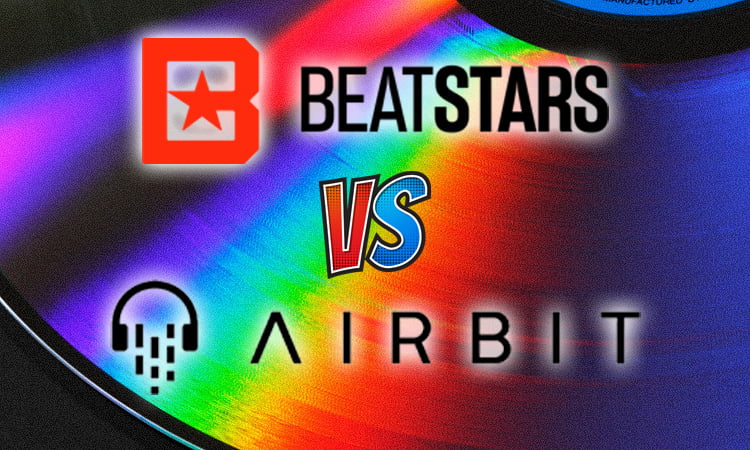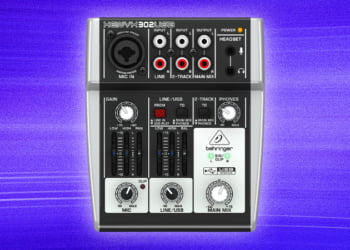Are you a music producer looking for the best beat selling platform to showcase and sell your beats? Look no further than this comparison of two of the most popular platforms out there: Beatstars and Airbit.
With so many options available, choosing the right beat selling platform can mean the difference between success and failure. Beatstars and Airbit are both excellent platforms that offer unique features and benefits to music producers. This article will break down the key aspects of both platforms to help you decide which one is the better choice for your needs.
Pricing
One of the primary considerations when choosing a beat selling platform is pricing. Both Beatstars and Airbit offer a range of pricing plans to suit the needs of different music producers.
| Platform | Pricing Plan | Price Range | Features |
|---|---|---|---|
| Beatstars | Basic | $9.99/mo | Unlimited uploads, 1-year lease options, Beatstore widget |
| Beatstars | Pro | $19.99/mo | Everything in Basic, plus unlimited tracked-out leases, YouTube monetization, and custom contracts |
| Airbit | Basic | $4.99/mo | 10 uploads, non-exclusive licensing, and basic features |
| Airbit | Pro | $19.99/mo | Everything in Basic, plus unlimited uploads, exclusive licensing, and advanced features such as Google Analytics integration |
It’s important to note that both Beatstars and Airbit charge transaction fees on top of their monthly fees. Beatstars transaction fees range from 0-30% depending on the licensing option chosen by the buyer, while Airbit charges a flat 30% fee on all sales. Additionally, both platforms offer higher-tier plans with additional features, but these plans can be more expensive.
Overall, the pricing for both Beatstars and Airbit is relatively affordable, with basic plans starting at under $10 per month. However, music producers should carefully evaluate their needs and budget when choosing between the two platforms.
Ease of Use
One of the key factors to consider when selecting a beat selling platform is how easy it is to use. After all, you don’t want to spend hours trying to figure out how to upload beats or navigate the interface when you could be creating new music. So, how do Beatstars and Airbit compare when it comes to ease of use?
| Beatstars | Airbit |
|---|---|
| Beatstars offers a clean and intuitive user interface that is easy to navigate, even for those who are new to the platform. The site’s dashboard is organized and labeled clearly, making it simple to upload beats, manage licenses, and track sales. The platform also provides a beat store builder that allows you to customize the look and feel of your beat store with ease. | Airbit’s interface is also user-friendly, with a streamlined design that helps you get started quickly. The platform offers a dashboard that displays key information about your sales and customers, and allows you to manage your beats, licenses, and discounts easily. Additionally, Airbit provides a beat store customization tool that lets you create a unique beat store that reflects your branding and style. |
| Overall, Beatstars and Airbit are both easy to use, with interfaces that are straightforward and intuitive. |
Unique Features
While both Beatstars and Airbit offer user-friendly interfaces, they each have unique features that set them apart. For example, Beatstars provides a built-in marketplace that allows you to collaborate with other producers and sell beats, while Airbit offers a tool for creating custom contracts that can help protect your beats and ensure that you get paid properly.
Ultimately, the choice between Beatstars and Airbit when it comes to ease of use may depend on which platform’s unique features align best with your individual needs and preferences.
Beats and Licensing
When it comes to selling beats on Beatstars and Airbit, the types of beats and licenses available are an important consideration. Both platforms offer a variety of beats, including hip hop, R&B, and pop, but the licensing options differ.
Beatstars offers both exclusive and non-exclusive licenses for beats. Exclusive licenses give the buyer complete ownership of the beat and the right to use it exclusively, while non-exclusive licenses allow multiple buyers to use the beat, but with certain restrictions.
Airbit, on the other hand, focuses on offering royalty-free beats. This means that once a buyer purchases a beat, they have the right to use it for any purpose without any additional fees or royalties. However, Airbit does offer the option to purchase exclusive licenses for certain beats.
It’s important to note that the terms and conditions of each platform’s licensing agreements differ. It’s recommended that music producers carefully review each platform’s licensing terms before selling their beats.
Sales and Marketing Tools
Both Beatstars and Airbit offer a range of tools for music producers to promote and sell their beats online, but which platform provides the most effective tools for driving sales?
Beatstars offers a range of sales and marketing tools, including email marketing integrations, social media promotion, and analytics reports. Users can also create custom discount codes and run sales campaigns to incentivize buyers.
Airbit, on the other hand, offers similar sales and marketing tools, including email marketing integrations and social media promotion. However, Airbit also offers a tool called ‘Flash Store’ that allows producers to embed a customizable beat player on their own website, giving them greater control over the sales process.
Both platforms offer a variety of promotional tools, but the Flash Store feature offered by Airbit gives producers more flexibility in how they market and sell their beats.
Community and Networking
Both Beatstars and Airbit offer a vibrant community of music producers, beatmakers, and artists. The platforms provide forums and networking opportunities where users can collaborate, share tips, and exchange feedback.
Beatstars boasts a community of over 1 million music producers, making it one of the largest beat selling platforms available. The platform offers a robust forum where producers can interact and share their experiences. Additionally, Beatstars provides collaboration tools that allow producers to connect with artists and other producers to create new music.
Airbit, on the other hand, has a smaller community but still provides a supportive environment for its users. The platform offers a forum where producers can introduce themselves and interact with other members. Airbit also provides networking opportunities through its “airbit live” events, where producers can meet and collaborate in person.
Collaboration Tools
Both Beatstars and Airbit offer collaboration tools that allow music producers to work together. Beatstars provides a dedicated feature called “Collabos” which helps producers find other like-minded producers and collaborate on beats.
Airbit has a ‘Collaborations’ section on its forum that allows producers to post requests for collaborations. The section is an excellent way for producers to find potential collaborators and producers to work with.
Support and Resources
Both platforms offer support and resources that users can access to get help with any issues they face. Beatstars offers an extensive knowledge base that covers a broad range of topics, from getting started to advanced selling strategies. The platform also provides customer support via email, phone, and chat.
Airbit provides a detailed FAQ section that covers all aspects of using the platform. The platform also has a dedicated customer support team that users can contact via email or phone.
Engagement and Support
Both platforms have active communities where users can engage with one another and get support. Beatstars has a large and active community, and the platform offers regular webinars and live events to help its users build their businesses. The platform also has a dedicated Facebook group where users can share tips and ask for help from other producers.
Airbit has a smaller but still active community, and the platform has a dedicated Facebook group where users can share experiences and get support from other users. Additionally, Airbit offers a free e-book that provides useful tips and strategies for selling beats online.
Customer Support
When it comes to selling beats online, having reliable and responsive customer support is crucial. Let’s take a look at how Beatstars and Airbit compare in terms of customer service.
| Platform | Response Time | Availability | Helpfulness |
|---|---|---|---|
| Beatstars | Less than 24 hours | 24/7 | Knowledgeable and helpful |
| Airbit | Less than 48 hours | Weekdays only | Generally helpful, but less responsive |
Based on user reviews and personal experience, Beatstars appears to have a more reliable and responsive customer support team. They offer 24/7 support and respond to most inquiries within 24 hours. Their support team is also known for being knowledgeable and helpful.
Airbit, on the other hand, only offers support on weekdays and may take up to 48 hours to respond to inquiries. While their support team is generally helpful, they may not be as responsive as Beatstars.
Both platforms offer extensive resources and tutorials for users, including FAQs, blog posts, and video tutorials. However, Beatstars seems to have a more organized and comprehensive knowledge base, making it easier for users to find the information they need.
Payment Options
When choosing a beat selling platform, it’s important to consider the payment options available. Both Beatstars and Airbit offer a variety of payment methods, but let’s dive into the specifics.
| Platform | Accepted Currencies | Payment Processing Fees | Withdrawal Options |
|---|---|---|---|
| Beatstars | USD, EUR | 2% + $0.30 per transaction | PayPal, Stripe |
| Airbit | USD, EUR, CAD, AUD, GBP, JPY | None | PayPal, Payoneer, Bank Transfer, Western Union |
As you can see, Beatstars charges a payment processing fee of 2% plus $0.30 per transaction, while Airbit doesn’t charge any fees. However, Beatstars only accepts USD and EUR, whereas Airbit accepts multiple currencies.
Both platforms offer PayPal as a withdrawal option, but Airbit also offers Payoneer, bank transfer, and Western Union. This makes Airbit a better option for users who prefer alternative withdrawal methods.
Overall, Airbit offers more payment options and doesn’t charge any fees, making it the better choice for payment flexibility and affordability. However, if you only deal in USD or EUR, Beatstars is still a viable option.
FAQ
Here are some frequently asked questions about the two beat selling platforms:
How do I upload beats?
Both Beatstars and Airbit allow you to easily upload beats to your account. Simply click on the “Upload” button, select the file you want to upload, and fill out any necessary information such as track title, producer name, and price.
How do I get paid?
Both platforms offer various payment options such as PayPal and Stripe. Once you make a sale, your earnings will be held in your account until you decide to withdraw them. You can withdraw your earnings at any time, but be aware of any withdrawal fees and payment processing times.
How do I promote my beats?
Both platforms offer various marketing tools such as email marketing integrations, social media promotion, and analytics reports. It’s important to utilize these tools to increase your visibility and drive sales. Additionally, networking with other music producers on the platforms can also help you gain exposure and collaborations.
What types of licenses are available?
Both Beatstars and Airbit offer non-exclusive and exclusive licenses for beats. Non-exclusive licenses allow multiple artists to use the same beat, while exclusive licenses grant full ownership to one artist. Be sure to carefully read and understand the terms and conditions of each platform’s licensing agreement.
What types of customer support are available?
Both platforms offer customer support through email and online chat. Beatstars also offers a help center with various resources and tutorials for users, while Airbit offers a FAQ section along with video tutorials on their website.
Are there any hidden fees?
Be sure to carefully read and understand the pricing plans of each platform to avoid any hidden fees. Both platforms offer various tiers with different features and prices, so it’s important to choose the one that best fits your needs and budget.























